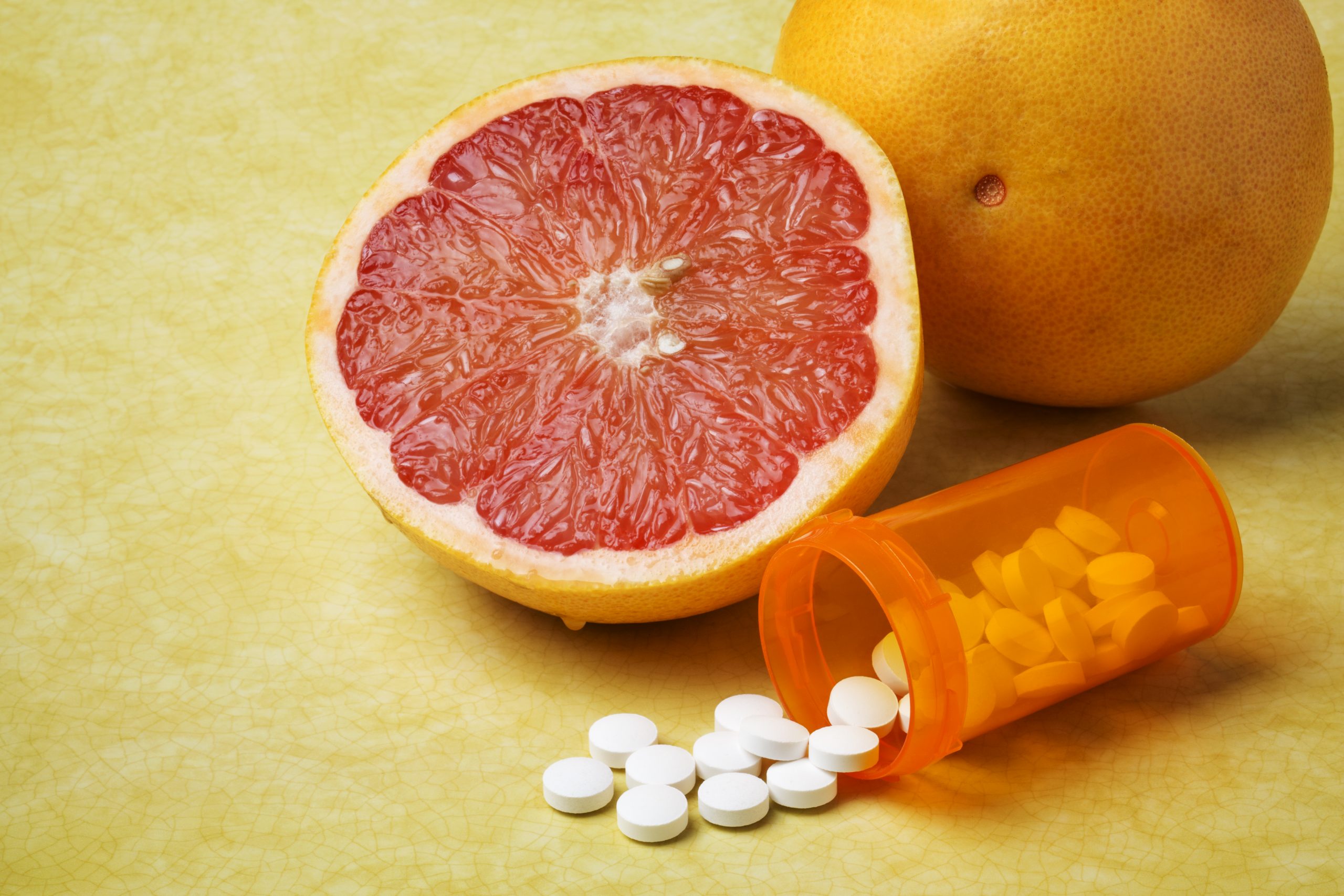Each week, OMRF Chief Medical Officer Dr. Judith James opens “Adam’s Journal” to answer a medical question from Adam Cohen, OMRF’s senior vice president & general counsel.
Adam’s Journal
Here’s a question from an Oklahoma Medical Research Foundation coworker:
My grandma loves grapefruit, but she hasn’t had one in years because of possible interactions with her medication. Why are grapefruits (but not other citrus) off-limits? I don’t want to be the devil on her shoulder, but I wish I could tell her an occasional glass of juice is OK.
Kate Miller
Dr. James Prescribes
It may sound far-fetched, but grapefruit and grapefruit juice can be extremely dangerous if you’re taking certain drugs. And even a relatively small amount of fruit or juice can cause problems.
The drugs span a broad range, from select blood pressure medications to some blood thinners. They also include some allergy pills, anti-anxiety drugs, heart rhythm medications and cholesterol-lowering statin drugs like Zocor and Lipitor.
For most of these medications, the issue lies with an enzyme in our gastrointestinal tract called CYP3A4. This enzyme plays a crucial role in breaking them down.
However, grapefruit contains natural chemicals called furanocoumarins that block the action of this enzyme. So, rather than being broken down like normal, higher levels of the drug can enter the bloodstream.
Depending on the drug and the individual, the results can range widely in severity, from no noticeable symptoms to life-threatening internal bleeding or organ failure. And the risks generally increase with the amount of grapefruit or juice a person consumes.
Other citrus fruits – limes, Seville oranges and pomelos, for example – also contain furanocoumarins. In nature, these help protect the fruits from certain insects and infections. But, as with grapefruit, they can also produce dangerous drug interactions. And those interactions can be particularly potent if a person consumes the fruit’s peel, a common ingredient in key lime pie, fish dishes and garnishes.
Sorry to be your grandmother’s grapefruit grump, but she’d be wise to continue her current path of avoidance. While grapefruit is a good source of vitamin C and potassium, there are many other foods that can also provide these nutrients. If your grandmother has any doubt about whether they’re safe with her medications, she can study the label or consult her pharmacist or healthcare provider.
–
James is executive vice president and chief medical officer of the Oklahoma Medical Research Foundation. Cohen, a marathoner, is OMRF’s senior vice president and general counsel. Send your health questions to contact@omrf.org.



